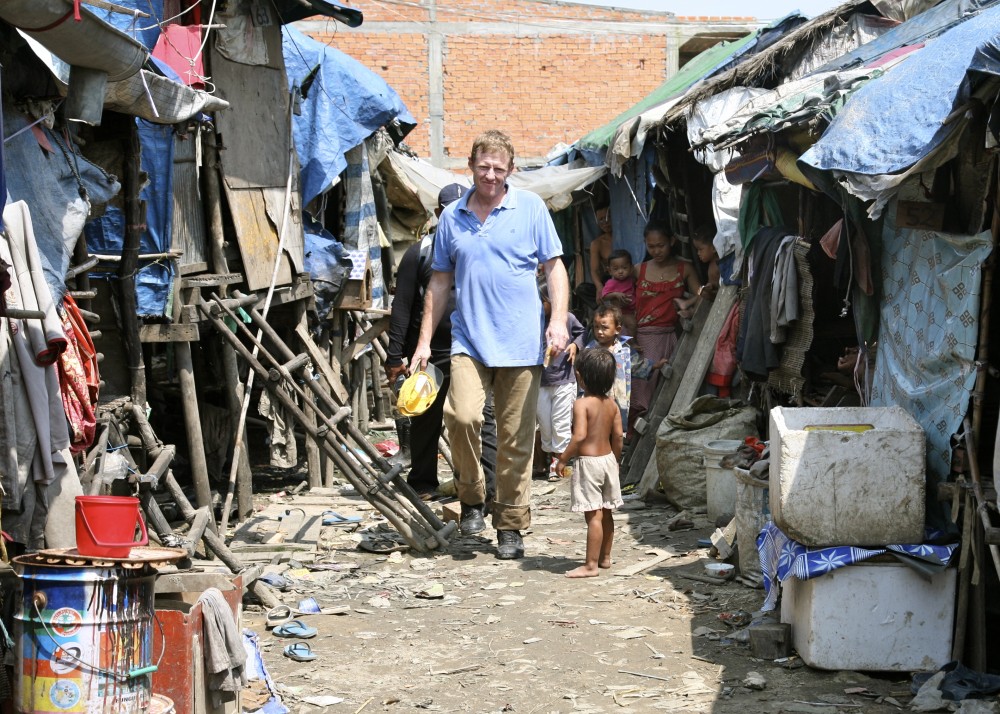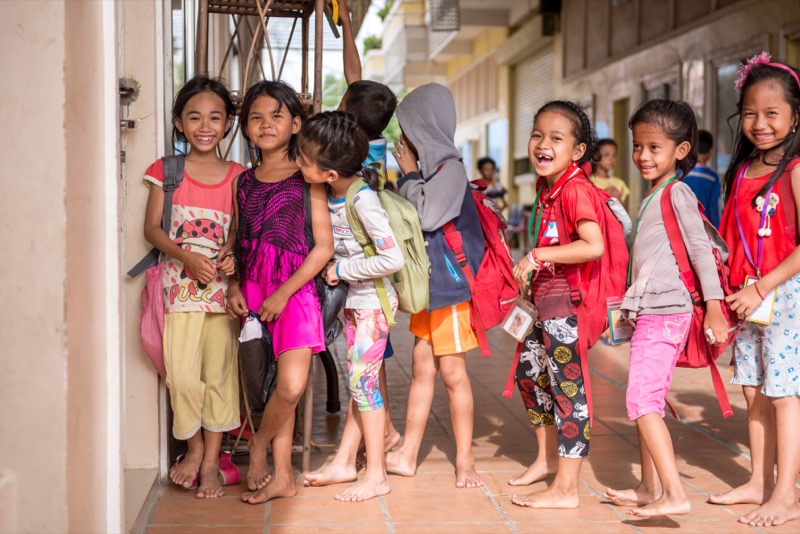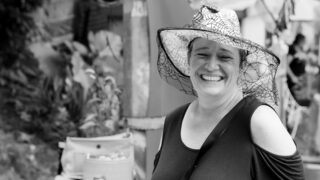Two years ago, 24 year-old Ang Srey Mom of the Cambodian Children’s Fund stood up at the BBC 100 Women’s Conference – an annual event in London to showcase inspirational, global women – to speak about gender inequality and domestic violence. It’s a daunting gig for any 24-year-old, but Ang isn’t your usual young woman. She currently heads up the Cambodian Children’s Fund Youth Leadership programme, but she spent her childhood scavenging on Steung Meanchey, a stinking, molten, perilous garbage dump in the south of Cambodia.

Cambodian Children’s Fund (CCF) founder Scott Neeson, who’s made it his life’s work to scoop up children working at Steung Meanchey and transform their lives, literally beams with pleasure when her name comes up. “Ang’s big dream was to work in a garment factory, and eventually we persuaded her to come in and study garment work,” he explains. “She turned out to be remarkably talented. After the conference, the VF Foundation offered her a two-year fashion design apprenticeship! She was over the moon, but she won’t leave the Cambodian Children’s Fund until she’s found someone to replace her: she’s training girls to take over.” Ang never went past Grade 7 at school; so, are her drive and ambition a result of nature or nurture? Scott shakes his head in wonderment: “I just give them the opportunity. They do the rest.”
Even someone as self-effacing as Scott can’t disguise his pride at the truly remarkable results his education initiative is yielding. By rooting schools in the middle of local communities and incentivising parents with special food prices, the 12-year-old programme now has 99 percent of the area’s children in school, 75 percent in university, and, Scott says, several top students set on careers in human rights law or politics. These include the likes of Met Chanmouy, who recently spoke at a CCF fundraiser in New York. “She’s tiny, because she was malnourished as a child; her mother was drunk and abusive, and she has trouble talking about it,” says Scott. “But she’s such a bright and charismatic spark! She wants to run for the Senate, to campaign against domestic violence and corruption. Cambodia is a very patriarchal society, and it would normally be very difficult for a girl, but I think she’ll do it.”
Scott knows each of the 2,000 children he cares for by name, and he travels the world to raise funds and awareness for Cambodian Children’s Fund’s many projects – ranging from education and healthcare to community outreach. A key source of income for the charity is its Child Sponsorship programme, which involves the donor taking on a role of “parent” to one child. “You must write to the child and be a consistent figure for them, even if it’s only once a month,” explains Scott. “They want someone to care if they’re feeling sad, and someone to be happy when they pass their tests!”

Underpinning the CCF approach is an effort to orchestrate real strategies for change in local communities, by utilising vocational training to ensure children like Met and Ang can stand on their own two feet, financially and emotionally, by adulthood. Scott says, “I believe the future of foreign aid is in replicating these schemes on a community level, as opposed to throwing billions of dollars into the top end. The latter works well if you’re eradicating a disease, like smallpox, but if it’s all about change in the community, pouring money into the top doesn’t work: you lose local responsibility and accountability.” The Cambodian Children’s Fund limits itself to 12,000 people and 3,500 families.
An example of this integration that Scott mentions is the Cambodian Children’s Fund’s six-year old maternal care programme, which now boasts a zero percent death rate. It involves specially trained “grandmothers” checking up on pregnant mothers, and teaching pre- and post-natal care. “The major aid organisations wanted to scale the idea up across the country,” explains Scott. “But as with every programme, you just can’t remove it from the community. There isn’t the support.”
The concept so far is producing fiercely committed, motivated young adults like Ang Srey Mom and Met Chanmouy. “If we didn’t teach leadership, we’d be putting 2,000 better educated kids back into the community, but with training in public speaking, unity, governance, corruption and gender rights, they can change everything!” says Scott. There seems little doubt these two young people, and the ones that follow them, are certainly going to try.
Sponsoring a child costs around US$150 each month | cambodianchildrensfund.org
To find out more, contact the Cambodian Children’s Fund at daisy@cambodianchildrensfund.org
This article first appeared in the Apr/May edition of Expat Living magazine. Subscribe now so you never miss an issue.
Want to help out closer to home? Volunteering in Hong Kong





